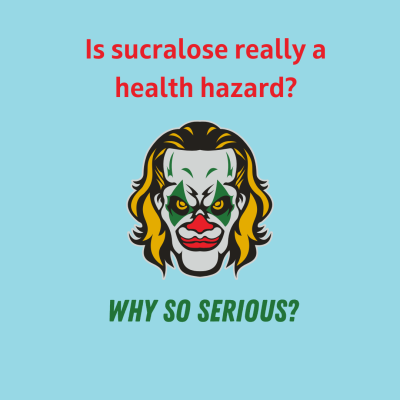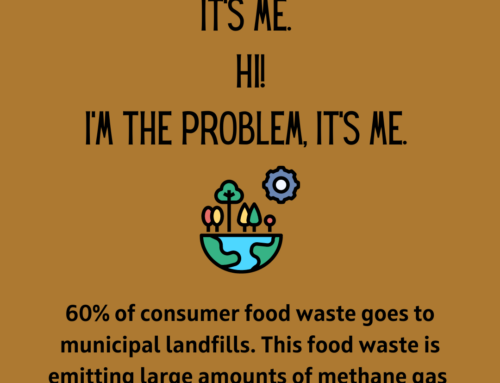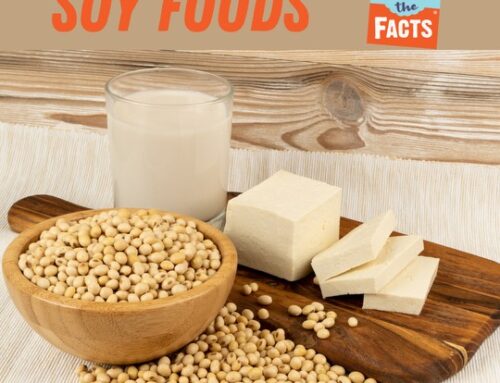Fear sells. Or rather, does it prevents sales? Hmmn?
By now you’ve seen the recent news headlines claimed that the chemical found in Splenda was found to “cause significant health damage” or “damages DNA and is ‘Genotoxic’” or “generates genotoxic chemicals that attack DNA”.
Regarding the recent headlines about sucralose, I will first always preface any information that is the result of a rodent study with: We are humans, not rodents. Click To TweetNonetheless, this might have caused you to pause, when it comes to the use of non-nutritive sweeteners and your health. But is there really a risk here?
Of course, the company that makes Splenda® is going to defend itself, but what are other scientists saying about this mouse study? As the study headlines states, this was a study about sucralose-6-acetate, not sucralose. Therefore, as the Joker would say, “Why so serious?”

Expert Assessments
Dr F. Perry Wilson provides a great breakdown on twitter. You can read his thread here. In addition, it was a study on rats, not humans. The rats were given hefty doses of sucralose-6-acetate. Dr Wilson doesn’t think blood levels of sucralose-6-acetate, with normal consumption, would come close to the DNA damage threshold noted in the article.
Epidemiologist Gideon Meyerowitz-Katz feels the headlines were extremely misleading and he has this to say. Essentially he concludes that “the dose makes the poison”. He also does some fantastic math that exemplifies that you’d need to drink 5000 cans of diet cola over two hours to get to the dose used in the study!
Hmmn?
Even though you’d need 1250 TIMES the sucralose dose used in the study to get to the concluded affect, keep in mind that the authors were also using sucralose-6-acetate, not sucralose. Therefore you’d probably have to consume an even more unreasonable amount of it for it to be a hazard (or cause harm).
On another note, it’s sad that WebMD reported on this study too, suggesting that the sweetener used in our food supply, by humans, was harmful. This is disappointing, and doesn’t give them a good look when it comes to sharing credible science.
So far, non-nutritive sweeteners have been pretty well studied. Past human studies have used doses of sucralose at 10mg/kg/day, which means in reality, this would be like using 60 packets of Splenda® a day.
Bottom Line
The totality of the scientific evidence convinces me that non-nutritive sweeteners are safe for what they were intended for – to offer a no-sugar option to beverages (and potentially some other foods). Like other sweeteners, moderation is what you are looking for. I personally enjoy a “diet beverage” a few times per week. I bake with regular sugar, and I don’t use non-nutritive sweeteners otherwise. I’ve often said that 6 cans of a diet cola every day is no better habit than drinking 6 cans of regular soda every day. It’s too much.
However now, as a consequence of the media and some health authorities calling for “less sugar” in our diets, companies are replacing that sugar, with more of these low or no-calorie sweeteners, in many more products. This is perhaps an unintended consequence, but may not be a good thing. Rather than taking a pause to read sensationalized headlines like, pause to read the labels on foods and beverages instead. While these sweeteners are safe, you should know when or if you’re consuming them.
Be a critical thinker. While these “news stories” are causing alarm about potential impact on your DNA or gut health, my gut tells me they are fueled by all the folks who don’t like “big food”.
This is just a distraction my friends. Carry on.




